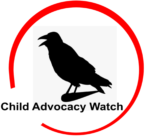 Welcome to the Trainings Page.
Welcome to the Trainings Page.
Here is where you will find training opportunities. Being able to effectively serve children and youth requires ongoing training. This is not a static, one size fits all field. I’m always happy to take additional training and I’ll be listing all the opportunities I find here for you to take advantage of.
So Much To Know
There are so many things to know to help keep children and youth safe, from techniques, tactics, and practices, to a knowledge of statutes, policies, and procedures. Many of us need to understand the ins and outs of dependency cases and court procedures, Citizen Review Board findings, and the role each stakeholder plays in keeping children and youth safe.
In addition, we need special knowledge of the effects of neglect, poverty, Fetal Alcohol Syndrome, Substance Use Disorder, Family and Interpersonal Violence, homelessness, food insecurity and so many other things that impact children and families.
Staying Current
Keeping up to date is important, as we discover and begin to acknowledge that the traditional way of doing this work has been harming children and families, or at least making it unnecessarily difficult for them. Here, it is important to understand systemic racism, implicit bias, the impact of language, discrimination based on sexual orientation, gender identity and/or expression, and what disproportionalities in the system show us about the things that need changing.
Changing Culture
Changing culture is an ongoing task, especially for areas with entrenched attitudes that are decades long. As we move from “saving the child” to “keeping the child safe”, we are learning more about the importance of families that are ‘safe enough’ or ‘good enough’. We are learning the cost effectiveness and the power of prevention versus punishment. We are beginning to understand the importance of a partnership between birth and resource (foster) families, whenever possible. We now know that, barring extreme circumstances, a parent doesn’t cease to be a parent because he or she is incarcerated. We now know that trauma and Adverse Childhood Experiences (ACEs) affect brain development and have lifelong impacts on both physical and mental health. All of this requires continued learning.
